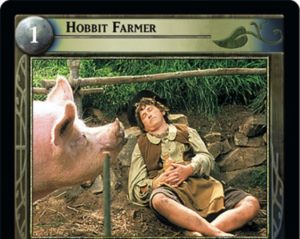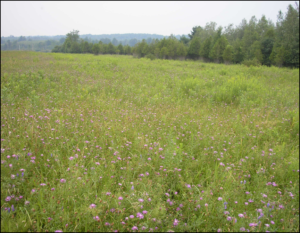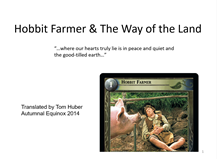Hobbit Farmer & The Way of the Land
“…where our hearts truly lie is in peace and quiet and the good-tilled earth…”
Translated by Tom Huber
Autumnal Equinox 2014

For the three contrarian agrarians –
Gene, Wendell, and Wes
And always –
Holly, Hannah, and Ivy
who inspired the search for Cedar Eden Farm

Introduction
The primary guide and inspiration for the Hobbit Farmer is the Tao Te Ching, which translated means, “the Way and the virtue of its power.” Over 2,500 years ago this treatise on the art of living and governing was delivered by the mythical and mystical Lao-tzu. He placed it in the hands of the guard at the village gate as he left to pursue life as a forest dweller.
There is no-thing that is not part of the Tao, an ever-present natural force that flows through everything. Tao also represents the path or way that underlies the harmonious flow within oneself and every encounter with the external world. Tao is the pulse of life, always changing and manifesting as the ten thousand things that make up the world.
The Tao also gives form to everything that is inherent in the Good Farmer. He or she is as old as the hills that have long been farmed as a way of subsisting with the good land. Human beings coevolved with nature and the agrarian traditions celebrate this fact with the bounty of their labor.
Hobbit Farmer represents a joyous return to the pleasures of small farm crafting, homesteading, and the good feeling in one’s bones that comes from a land-centered way of life. He who knows does not speak when silenced by the delights of a daily existence rooted in one’s favorite place of being. A life of labor on the land may not be easy, but it is a life of fulfillment for one who requires working for one’s earthly existence. When one’s work days are over, one is ready to go into the long, dark night. Dying is just another beginning all things pass this we know as incarnate and ensouled beings.
The Hobbit Farmer understands the gift of good land, and shows gratitude by living joyfully in he fullness of Nature. He practices the art of being one with what is without grasping for more. We must also adopt the she pronoun when referring to the Hobbit Farmer, which knows no single gender, race or ethnicity.) The Hobbit Farmer is the universal human being who carries a serene and generous spirit in everyday agrarian life.
The Hobbit Farmer is skilled at the ways of place making by being in accord with the natural forces of the Land community. The Way of the Hobbit Farmer is to study the natural design and work in harmony with this existing order rather than against it. Trying to make radical changes to the landform only sets up resistance from natural forces. By taking a long view, every thing gets accomplished through a natural approach (succession). “Less and less does the Master Farmer force things until she finally arrives at non doing; when nothing is done, nothing is left undone.”
In the Hobbit Way , the Master Farmer has completely vanished in the act of farming the nature of one’s true self and trusts in the intelligence of the moment and the perfect harmony with the Way things are on the Land. It is important to note that the other seminal companion to the Tao Te Ching is of course the I Ching or Book of Changes.
The book’s fundamental focus on time, rhythms, and seasons, and the proper way to come into accord with this everchanging subtle reality through right action likely arose as a vegetable oracle from the mind and working hands of a peasant people the folks ways of the Hobbit Farmer.
As today’s modern world struggles to create a regenerative culture, a simple land dwelling way of being the Hobbit Way can serve as a model for healing and restoring balance for All.
TJH
